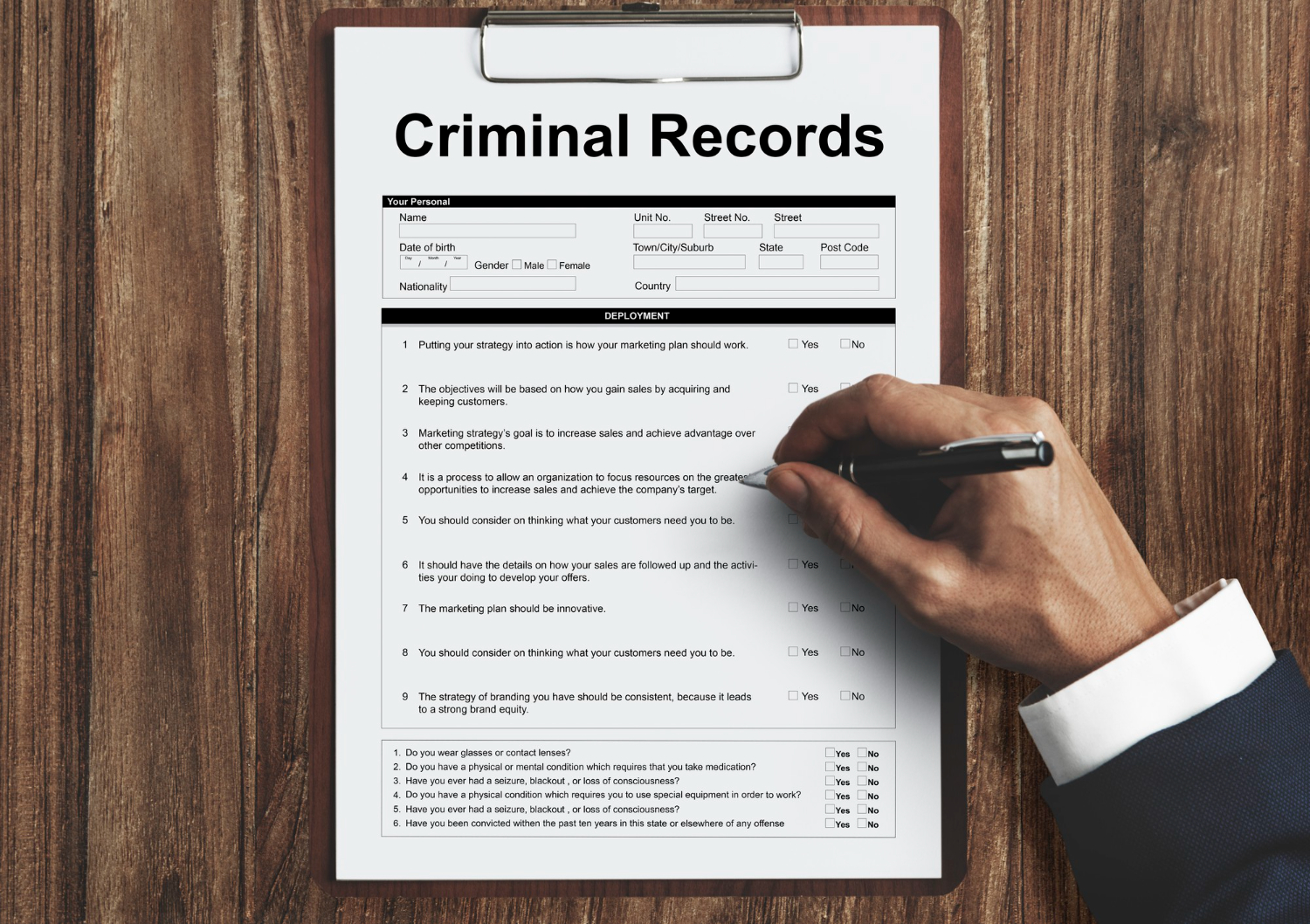
Criminal background checks show felony and misdemeanor convictions, infractions, pending criminal cases, active warrants, and more. However, many employers are confused about what should and shouldn’t appear on a search. Employers need trustworthy employees to trust with sensitive information like financial data or proprietary company knowledge. A criminal background check can help you make the best hiring decisions possible.
Legal Compliance
When you make a hiring decision, a criminal history background check helps you identify candidates with convictions that present significant liability risks to your business. For example, employees who work with sensitive financial information or money must be screened for convictions related to fraud and embezzlement. Employees who will be working directly with vulnerable populations, like children or older people, need to be screened for drug and assault convictions. Federal and state laws regulate how employers can use criminal records when hiring. These laws prevent discrimination based on race, religion, sex (including pregnancy, gender identity, and sexual orientation), national origin, age, or disability, among other protected characteristics. In addition, EEOC enforcement guidance prohibits using arrest and conviction records to make disparate-impact hiring decisions.
Criminal background checks can reveal felony and misdemeanor convictions, including the offense date, severity, disposition, and sentence if applicable. Federal criminal records also provide the names of the defendants, as well as any victims or witnesses. Employers must carefully consider what types of criminal records are relevant for each hiring position. For example, a candidate’s shoplifting conviction might not be a problem for a retail position but may significantly negatively impact a web design job. Employers must consult a knowledgeable and experienced CRA familiar with the complexities of the FCRA, EEOC, and ban-the-box laws to ensure they follow best practices for conducting criminal background checks.
Safety
Workplace safety and security are why criminal record checks are vital for employers. These checks help prevent employees with a history of violent, dishonest, or fraudulent activity from working in certain positions that may pose a risk to company assets and the well-being of current employees and customers. Moreover, background checks provide insight into an applicant’s criminal and financial history. These reports verify information provided on an employment application or during the interview and reveal a candidate’s criminal convictions, dates of arrest, charge details, and whether the offense was a felony or misdemeanor. They also confirm education and employment histories and validate degrees or certifications. These checks can uncover fraudulent activities, such as fabricated resume information or identity theft. Employers can face liability for negligent hiring claims if they fail to conduct background checks and hire someone who causes harm or losses to company property or people. Negligent hiring lawsuits can be costly to companies and damage company reputation, causing financial losses or loss of existing clients. Aside from legal liabilities, a bad hire can negatively impact productivity, team morale, and customer and employee satisfaction. Moreover, they can cost businesses in terms of expenses, stress, and time lost on recruiting or training a new employee.
Confidentiality
The information uncovered by criminal background checks may help prevent the hiring of someone who could endanger your team members or customers. This could save you from negligent hiring lawsuits if that employee were to cause harm on the job. The types of offenses that show up on criminal background checks include felony and misdemeanor convictions, as well as pending arrest cases, civil judgments, sex offender registry records, and prison records. Some searches also include petty infractions that may not be considered crimes by all jurisdictions, arrests that did not lead to convictions, and information about expunged or sealed criminal records.
Employers use criminal background checks to help identify candidates who are the best fit for the position they are applying for. Positions where employees have access to client information or financial data require a check for convictions related to theft, embezzlement, and other forms of dishonesty. Employees in roles that deal with drugs or alcohol should be screened for convictions of substance abuse, assaults, and other violent crimes. When hiring workers who will have contact with children, it’s essential to screen for records of abuse or neglect. In addition, a background check can also reveal whether or not an applicant has an unresolved child support case.
Fair Chance
There are 70-100 million people with a criminal record, many of whom struggle to find employment. The ability to hire candidates with records is becoming increasingly important for companies as their workforces become more diverse and inclusion efforts ramp up. But rejecting candidates with criminal histories can be a huge mistake. It limits your talent pool and denies opportunities to individuals who can contribute significantly to your company and society. Fair chance hiring laws are designed to remove some of the barriers people with records face when applying for jobs. These laws limit when employers can ask about an applicant’s criminal history and prohibit them from doing a background check until a candidate receives a conditional job offer. They also require employers to conduct an individualized assessment of the candidate’s conviction history, considering factors such as whether the crime was related to the nature of the job for which they are applying, age at the time of the offense, and mitigating circumstances, like addiction, domestic violence, and trauma, that may have led to criminal behavior.
Embracing fair chance hiring is a wise business decision, mainly if you are operating in a regulated industry or employing candidates who will work with vulnerable populations. It can help you increase workforce diversity, boost retention rates, and reduce liability risk.


